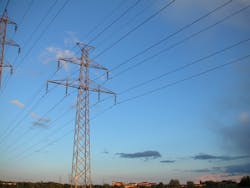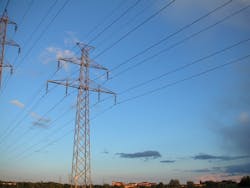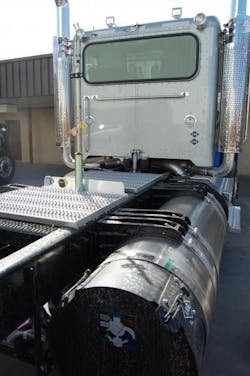Take the EPA’s Mercury Air Toxics Standards (MATS) scheduled to take effect in 2015, which propose some costly caps on power plant emissions in part to reduce the production of greenhouse gases (GHG).
That rule, now being hotly contested in court, could result in removing a lot of coal-fired electrical generation capacity in the U.S. – potentially helping to push up electricity prices for businesses and consumers alike.
For those and other reasons, then, there’s been an upswing in efforts to both improve energy efficiency while tapping alternative sources for power. The U.S. Marine Corps, for one, is making such efforts the cornerstone of its energy strategy for the future, in part to help make it a more nimble force on the ground by reducing its fuel supply needs.
Yet while often “alternative” energy sources are cheaper than petroleum, the cost to actually make use of them isn’t.Take trucking on natural gas, for instance. A study by global research firm Frost & Sullivan, for one, found that medium-duty trucks powered by spark-ignited compressed natural gas (CNG) and liquefied natural gas (LNG) can cost an additional $29,750 and $27,750, respectively, versus models powered by diesel.
Then there’s the far-pricier “compression ignition” system used for LNG-powered heavy-duty Class 8 models, which adds $72,450 or more on average to the sticker price of a comparable highway tractor fired by diesel.
And it’s such “adoption costs” (for lack of a better term) that remain the biggest hurdle that average Americans say prevents them for switching to alternative fuels.
That’s the finding of a poll conducted by Harris Interactive for the Propane Education & Research Council (PERC). Entitled Energy Habits, Awareness & Perceptions, Harris’ telephone survey of 1,000 adult Americans for PERC found that despite an overwhelming desire to “go alternative,” the cost of actually doing so remains prohibitive.
For example, nearly three-fourths of respondents said supporting new environmentally-friendly energy technology/products (74%) and infrastructure (73%) as topics they would like to see political leadership address in the coming year, according to PERC’s poll.
On top of that, this growing “environmental awareness” is affecting purchasing decisions, as 61% of the survey’s respondents said they have bought more environmentally friendly products this year than they did five years ago.Yet when asked why they think Americans have not fully embraced “environmentally-friendly” alternative fuels, 67% percent cited cost, according to PERC’s poll.
Additionally, PERC found that Americans remain conflicted concerning the proper “direction” of U.S. energy policy as 45% of those polled believe that the U.S. is headed in the right direction for finding domestic energy sources, while 43% believe the direction is wrong.
PERC noted that there is agreement among the respondents that the issue of “domestic energy” must be addressed, with 78% of those surveyed wanting political leaders to work on policy promoting domestic energy sources.
The most widely cited rationale for pursuing domestic energy sources, among the 93% considering it important to do so, was energy security (85%) followed by job creation and economic security (84%) and lower prices at the pump (72%), the council said.
Finally, the group said a “strong plurality” (39%) of Americans believe the government, rather than consumers (20%), corporations (18%) or small businesses (14%), should lead the nation in adopting domestic sources of energy such as natural gas, propane, and other alternatives.
In short, all of this means we as a nation still need to figure out where we’re going in terms of national energy policy – and that by no means will it be an easy journey.



